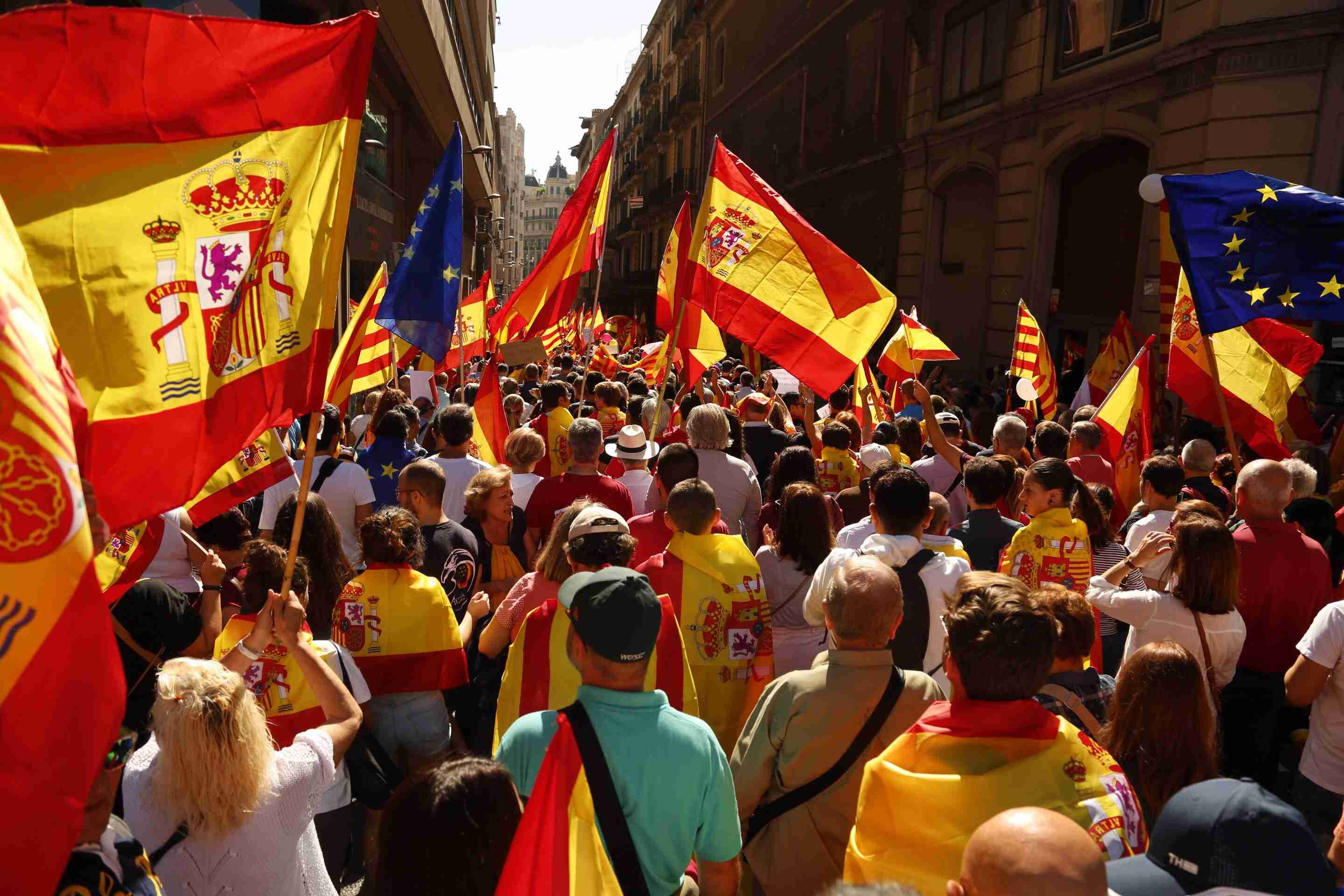You wince from the very title itself: "'Country of thieves' wrestles with corruption". The country in question is Spain and the title is from a "Letter from Madrid" written by Guy Hedgecoe in Politico Europe, the most read and most influential media among EU movers and shakers. It can be summarised in two sentences. One, the subheading: "Flawed judiciary system and legacy of fascism continue to plague Spain’s political parties". Another: “This is a country of thieves and its justice system doesn’t work”, a 2009 quote from communist leader Julio Anguita highlighted by Hedgecoe.
The article brings together, in four or five minutes, the country's best-known corruption cases, simplified, calmly, as a foreigner sees them (the author, from Ireland, has worked in Spain since 2003). It's a gut-punch. Reading, all together (not here and there), that between July 2015 and September 2016 1,378 civil servants and politicians of all stripes were tried in Spain for corruption; that the governing PP currently faces over 50 such investigations in different courts; that the former secretary general of PP in Valencia has accepted before the Supreme Court that electoral campaigns were financed with dirty money; that two former presidents of Andalusia are on trial for alleged participation in a scam "to the tune of €136 million" (£121 million, $167 million); that CDC's treasurer has been sentenced over the "Palau affair" (six million euros in commissions); that Spain is 42nd on Transparency International's Corruption Perceptions Index, behind Costa Rica and Botswana... Reading all of this at once, what faces will they be pulling by the end on the other side of the Pyrenees, all those Eurocrats, diplomats and assorted Euro-whoevers.
"Many of the abuses committed in modern-day Spain have their roots in the 1936-1975 dictatorship of Francisco Franco" which put in place "what his biographer Paul Preston has described as 'institutionalized pillage'"
According to the article, "many of the abuses committed in modern-day Spain have their roots in the 1936-1975 dictatorship of Francisco Franco" which put in place "what his biographer Paul Preston has described as 'institutionalized pillage'". It's not remotely a stretch to go from there to questioning the story of the transition to democracy. The commentators cited by the journalist hint in that direction. Democracies which emerge from fascism inherit corrupt structures, one says. Another hammers the point home: managing a new democracy is very hard if the methods learnt during the dictatorship aren't used. Another adds: the same parties have governed for too long without checks and balances. Yet another gives an even blunter conclusion: parties have become mafias.
"In Spain, the justice system contributes to [the democratic] shortfall", Hedgecoe explains, citing last year's Eurobarometer which "showed that Spaniards had less faith in the independence of their judiciary than any of their EU neighbors, except Hungary and Poland". He also recalls last year's resignation of the country's new top anti-corruption prosecutor after the Panama Papers revealed he had hidden assets in an offshore firm. Then there is the "feeling that the media has failed to audit politicians and businesses with sufficient rigor".
It's not strange, one of the people quoted, a historian, concludes, that Spanish politicians should "feel the impunity the Franco-era politicians used to feel".
The article discusses the reach of corruption and its roots. It's not a complete portrait of Spain, nor an academic work. Its critical tone, between a ticking-off and a telling-off, is heightened by those quoted, all of them, to say it briefly, "incensed": Darío Adanti and Edu Galán, director and editor of satirical monthly Mongolia; Jaume Muñoz, historian and author of La España corrupta (Corrupt Spain); Joan Coscubiela, former spokesperson of CSQP (Catalonia Yes We Can), and Simona Levi, playwright, activist and director of the Masters program in Civil Rights, Technopolicy and Digital Culture at UPF Barcelona School of Management.
"I was very curious why there are so many corruption cases in Spain and I wanted to understand it", Hedgecoe told El Nacional. Regarding his choices of sources: "I didn't want to speak with politicians, clearly. I didn't think that all the people I spoke to would refer me to Franco as the origin of everything. I understand that it's not the only cause, but it's the root".
"Another factor is the media, which has an important role in all this"
It hasn't all been smooth sailing for the journalist: "it's a delicate topic: you don't want to talk about Franco when you're talking about Spain". He says another cause of the corruption "is the concentration of power in certain parties: PSOE in Andalusia, PP in Valencia and Madrid, CDC in Catalonia... And another factor is the media, which has an important role in all this".
This article, more comprehensive than other recent examples (link in Catalan), however incomplete and biased you may think it is, contains facts which affect the narrative of the EU itself, often presented to the world as the institution which has supported the longest period of peace ever seen on the continent (Nobel Prize for Peace, 2012), and it likes to point to Spain as the best example of the benefits of the European project. It doesn't only question this interpretation framework. It promotes the contrary. For example, how do the repression of the independence movement, or the news that the changes to the VAT system, with retroactive effects for Catalan research centres, including some of worldwide note, will now, all of a sudden, have to send 20 million euros (£18 million, $25 million) to the Tax Office, fit in this context? Well, they fit, as you would imagine, in the context of corruption and abuses. These stories sting.

